The Untold Tale (J.M. Frey)
$5.99
The Accidental Turn Book I
Forsyth Turn is not a hero. Lordling of Turn Hall and Lysse Chipping, yes. Spymaster for the king, certainly. But hero? That’s his older brother’s job, and Kintyre Turn is nothing if not legendary. However, when a raid on the kingdom’s worst criminal results in the rescue of a bafflingly blunt woman, oddly named and even more oddly mannered, Forsyth finds his quaint, sedentary life is turned on its head.
Dragged reluctantly into a quest he never expected, and fighting villains that even his brother has never managed to best, Forsyth is forced to confront his own self-shame and the demons that come with always being second-best. And, more than that, when he finally realizes where Lucy came from and why she’s here, he’ll be forced to question not only his place in the world, but the very meaning of his own existence.
Smartly crafted, The Untold Tale gives agency to the unlikeliest of heroes: the silenced, the marginalized, and the overlooked. It asks what it really means to be a fan when the worlds you love don’t resemble the world you live in, celebrates the power of the written word, challenges tropes, and shows us what happens when someone stands up and refuses to remain a secondary character in their own life.
Additional information
| Format | ePub (Nook), Mobi (Kindle), Paperback, PDF (Other) |
|---|
Read The First Chapter
One
I am upstairs when I catch sight of the approaching cart and its cargo through the thick glass of my window. I assume the body in the back is a corpse, brought to me for study and then burial. But no one handles a corpse with such care; the driver is directing the horse to travel slowly, avoiding each hole in the dirt road. They also do not stop to pick up a healer for a corpse. Yet Mother Mouth is in the back, hunched as best she is able over the blanket-wrapped body.
By the time I make it down the grand staircase to the foyer, three of my Men are lifting the bundle from the cart with careful concern. I gesture to the threshold, and they lower it onto my front step. As soon as they set the body down, I can see that my assumption was correct.
It is a young woman.
And she is still alive. But only barely. I contain my shudder of revulsion, clamping my teeth down hard on my tongue to keep from gagging. I think I am only successful because I’ve seen this sort of thing before.
Bootknife has flayed her very prettily.
Artistic tendrils of bloody ivy are torn into the vellum of the young woman’s flesh. I can only see a little of the pattern, however, from between the blanket’s folds. Bootknife has written spells and agony into the muscle he’s carved, into the wounds left by the strips he filleted from her. It’s as detailed as any woodcarving for a stamp—some deep; some wide and shallow; some the merest scrape, only a layer or two of skin absent. Disgustingly beautiful. But it is not art.
It is torture.
She is unconscious. A blessing. I can’t imagine how much the young woman must have been screaming before my Men forced poppy milk down her throat. Well, I suppose I can imagine it—I have seen quite enough of Bootknife’s handiwork to be able to envision her pain. What I mean is that I do not want to imagine it. I can’t bear the thought of the sounds that must have ripped her throat bloody.
She is as wrapped in rough blankets as she can be with such extensive injuries to her back. The blankets are filthy and crusted with blood and other bodily fluids, which means they were probably the only protection against the chill spring morning that her rescuers could find. I clench my hands into fists and jam them into the pockets of my house robe to keep from rushing forward and helping. A Chipping Master does not dirty his hands in labor. I hear the invective in my father’s hateful voice in my head, and I take great pleasure in telling it to go drown itself.
All the same, I stay back. I would only be in the way.
Mother Mouth assesses the young woman’s injuries, and when she is done, we ensure together that there are no Words of Tracing carved into the victim’s skin.
It would not do to give our enemies such advantageous leverage as to lead them here. To the unknowing, my home appears to be no more than the manor of silly, crumpled Forsyth Turn, younger brother to the great hero Kintyre and a man quite stodgily attached to his library. And those on the outside must remain unknowing. Even the slightest slip would bring the Viceroy down on my Chipping, and I will not have the people under my care endangered.
I do not bother to ask why my Men brought the woman to me and not to the king; if the king had the security and ability to protect himself and those in his charge from the Viceroy, he would never have secretly employed me as his Shadow Hand.
There is nowhere safer for the injured visitor than Turn Hall. Not even Kingskeep.
Assessment done, they take the woman inside. I catch the attention of my butler and order a wing of my home that I have not entered in years be opened specifically for my surprise guest.
It has been a long time since there’s been a need for lady’s chambers in Turn Hall. They have remained shut since my mother’s death. It has been even longer still since the need for a lady’s maid; my staff are nearly all men. This is not out of preference, but because there are no women in my household who require women servants, and it made sense to leave the town’s supply of employable young misses for houses where they were more needed.
I am going to have to find a woman. Blast.
We linger in the hallway outside the room long enough for servants to strip the dusty bed linens and replace them with fresh. I dismiss my Men to write up their debriefing reports, and then help Mother Mouth lay the young lady on the bed myself. The only way we figure she will be comfortable is belly-down, her face propped to the side with a feather pillow.
Once she is installed on the bed, I step back into a corner to remain out of the way. Mother Mouth takes a short breather—she is no longer young; her skin is papery thin and scored with laughter lines, but still glows with vitality—and all this rushing and lifting has winded her. She then ties her silver-streaked hair back and begins the careful work of spreading tinctures and ointments, mixing potions meant to neutralize spells and remove pain before she starts cutting away, with gentle knife work, the meat that has rotted from neglect.
My staff moves around them both in an orchestrated dance, fetching lamps and candles and water in an ewer; bringing in, using, and then removing brooms and cleaning supplies; opening windows and laying a fire in the hearth. I do as I always do, what I am best at doing: I observe.
When Mother Mouth finally sits back, a smear of blood on her forehead where she pushed a stray tendril of hair out of her face, I offer her a handkerchief. It is russet, the color associated with House Turn, my family. She takes it graciously, though she wrinkles her nose at the fineness of the fabric.
“We’ve had this discussion before,” she says. “Good silk should be saved for dressing wounds, and rough cotton for wiping faces and noses.”
“I agree, Mother,” I allow, a smile sitting in the corner of my mouth and trying so very hard to stretch into the rest of it. “However, there are expectations at court, and when one’s work relies on creating a good impression, the silk must be used for snot.”
“And that’s why I’ve no use for court.”
Mother Mouth rises and goes to the bag of medicines she left on the bedside table. She pulls out phials and jars, each neatly labeled in her spiky hand. She is leaving behind tinctures and syrups to add to my young visitor’s wine when she wakes in pain, along with bandages and ointments enough to cover the whole of the vicious patterns on her back several times over.
“Right, then, my boy,” Mother Mouth says, standing and cleaning her bloody hands at the washstand. “Let the lass sleep it through, and I’ll return in the morning to assess her healing. I tell you, I wouldn’t want to be her right now. Keep her asleep if you’re able, lad. And send for me at once should she turn feverish or her wounds begin to fester and reek,” she finishes.
“No stitches?” Mother Mouth has sewn each of my Men up at one point or another, myself included. There are none among the Shadow’s Men who do not bare the gratefully earned signature of her needle. It seems odd now that she is not doing the same for our guest.
“No,” Mother Mouth agrees. “The slices that remain open are shallow. Where they are also narrow, there is no need. Where they are wide . . .” She shrugs. “I could not make the skin meet over the exposed muscle without tearing it. The rest of the deep cuts have begun to scar already. Better to cover it over with the salve, and with Words, and leave it to nature.”
I nod, well used to this particular healer’s pointed and honest instructions—she is the best within an hour’s ride from my keep, and thus my preferred go-to healer. My Men and I call her Mother Mouth because of her bluntness, her willingness to bully us verbally into obeying her commands, and we always do so with a smile, and to her face. She has another name, but has long since gamely resigned herself to this one.
“I will reapply both salve and spells personally when it is t-t-time,” I promise.
“Oh now,” Mother Mouth scolds playfully. “None of that, my boy. No need to be nervous. It’s just a woman and a bit of blood.”
“I’m not ne-nervous of her,” I say.
She pats my arm. “Of course not. You’re a good boy, Master Turn.”
I pretend to bristle at the juvenile endearment, but it secretly pleases me. Mother Mouth has known me my entire life. She pulled both my elder brother and I from our mother. She set my broken arm when Kintyre dared me to climb an orchard tree to the top. She put her hands into my brother’s guts after his first run-in with a goblin brigade and held them in place until the Words of Healing could take hold. She closed my mother’s eyes after a fever took the Lady Turn away. She called my father’s corpse a silly shit while she cleaned it the day he drank himself into a tumble down the foyer staircase and into his own grave. She has more than earned the right to call me her “good boy,” should she so choose. And I always do my best to live up to it.
Mother Mouth packs her small case and takes her leave. When my staff has finished ferrying ewers of both hot and cool water, wine, a modest bowl of broth, fresh candles, towels, my mother’s newly cleaned dressing robe, my mother’s slippers, and my portable writing desk into the room, I dismiss them to their suppers.
One last young lady lingers at the door, and she must be freshly arrived for she does not wear russet livery. I do not know her, and she seems eager to be of help, which is extremely encouraging. She is slim, her hands rough and callused, giving her the appearance of one who looks like she works hard, and her apron is very starched. She resembles Cook—same rigidly marshaled brown hair, same firm lines around her eyes, very competent and very discreet. She waits silently on the threshold, obviously waiting for me to speak first.
“Hello,” I say. “Yes?”
“Sir,” she says and bobs a curtsy. “My mother sent for me when she heard you had a lady guest, sir. Figured you’d want a girl in, sir.”
“Very good of her to take the initiative. Well come, and well stayed.” I take a moment to go to my portable desk and scribble upon a fresh piece of paper. When the ink is dry, I fold up the note. “Your name, miss?” I ask.
“Neris, sir.”
“Can you read, Neris?”
“Yes, sir. Of course, sir.”
“Excellent. Here.” I hold out my hand. In it are a letter and a small sack of gold coins. She takes both.
“I would like you to return to your usual household with this and give both to your mistress. The envelope contains an apology letter to your employer, and this should be enough coin to replace the wages she’s already paid you this week. I would have you here until you are no longer needed at Turn Hall. And I will pay double whatever your current employer offers. Is that acceptable?”
She smiles, and there must be her father, for Cook’s face does not have such fetching dimples. “Oh, yes sir!”
“And I invite you to move your things into the Hall come morning. Unless you have another billit you prefer?” I ask. She shakes her head. “Very well. Ask your mother for Turn-russet livery when you return, and we’ll get you set up in the maid’s quarters. Though, ah, you may be alone there.”
“I’m not afraid of the dark and the quiet, Master Turn,” she says, dropping a curtsy and vanishing in that lovely discreet way of lady’s maids the world over. It’s a vastly underprized skill.
My new guest and I are now alone.
My skin prickles at the thought of being trapped in a room with a person I know so very little about—I am not used to being the one on poor footing—and I go to the window to try to relieve the pressing sense of claustrophobia. It is silly; she is unconscious and, thanks to the poppy milk, will remain so for a good long while. I have nothing to fear from her.
Still. She is an unknown factor, and I do not like those in the least.
There is a reason I’m the king’s Shadow Hand. Who better for a spymaster than the man who becomes physically agitated when he feels ignorant?
The sky outside has turned an ashy blue. Rain is on the horizon, and the breeze is picking up accordingly. I open the sash just enough to allow in the fresh wet air, but not enough for raindrops when they finally start to fall. The puff of breeze against my chest, fluttering my shirt and Turn-russet robe, gives me a false sense of safety—I have an exit if I need one.
The breeze also flutters the heavy velvet drapes. Dust puffs out of the folds and onto the wooden floor. My mother was of House Sheil, and so much of the décor in her chambers is a deep, dark purple—the throw rugs, the comfortable upholstered chairs by the hearth, the bedding, all of it is patterned with curling designs of lilac and lavender and deepest indigo. It has been years, perhaps a whole decade, since my father had Mother’s chambers shut up. I suddenly realize how much I have missed purple.
The cloud cover is blocking so much of the sun that the room has become gloomy, and the details of the woman hard to catch. I make a second circuit for candles, which I light with a twig from the small fire in the hearth. Then I set the kettle Cook left on the mantelpiece onto the hook attached to the flume and wait for it to boil. A hot drink on a gray day is always a comfort, and the air in my mother’s chambers is dry from being shut up for so long, so the steam will do us both some good.
Now to take care of this silly fear; I will observe the woman and decipher what I can of her, so that the anxiousness can finally dissipate long enough for me to get some paperwork done. I pull one of the chairs that stand before the fireplace over to the bedside, and settle into the lush padding. Then I look.
The first thing that registers is that she is in pain, despite the sleep brought on by the poppy milk. It is obvious by the creases in her forehead and the set of her jaw. Her hair is matted with sweat and other fluids that I do not wish to consider closely. Perhaps I dismissed Neris too hastily—my guest could certainly do with a wash, if only for her own comfort. But I am not certain that it would not have caused her more agony, so perhaps it is best to wait until the young woman is awake and aware and able to help the maid.
Beyond that, I have no concept of who she is or where she may be from. Any clues that might have come from her clothing were lost when Bootknife cut them off her. Her ears are pierced, but there are no jewels from which to read her origins or history, no rings, no signets, no torques. How galling!
Her features resemble those of no family I know, which is impressive, as I have a very good head for faces. Her mouth is a small moue of pain, neither generous of plumpness nor waspish or thin. She has lines around the corners that indicate that she laughs heartily and frequently. Her cheeks are higher than I am used to and smooth, sprinkled with freckles. Her skin is dusky in tone, quite similar to the color possessed by the outdoor laborers from the Flung Isles after a season’s work, but not so reddish. Hers is closer to the hue of well-cared for honeywood, made even more yellow in tone by the Sheil-purple of the blankets surrounding her. Her nose is short, adorable in a way that many women curse for being too childish looking. Her lashes are dark, and her eyes sweep upward at the outer edges.
I can tell by the curve of her exposed back, where it swells into her hips and the sides of her breasts, that she’s never starved, never seen a rough harvest or overlong winter.
In summary, she must be a well-off merchant’s daughter, and quite possibly yet another merchant’s wife. I would say a nobleman’s, but she cannot be the child of any nobleman I know from court, legitimate or not.
She could be from another, distant kingdom beyond the borders of Hain, but I have met much of the nobility from Urland and Gadot, as well as a few from Brystal, and she does not bear the trademark of any house that I know; her skin is either too light or too dark, her eyes too round or not round enough, her nose too snubbed or too high, her chin too round.
In short, the collection of her features does not come together to spell out her parentage.
Infuriating.
And fantastic. I am intrigued, instantly. How long has it been since I have been gifted with such a mystery? And that she was imprisoned by the Viceroy for so long without my knowing he had kidnapped anyone . . . was holding anyone at all. It was only an accident of circumstance that she was even rescued, that I even know she exists. The Viceroy had been raiding magical archives and libraries the world over, and when I had put together the picture the sorts of tomes he was stealing painted, I ordered my Men to raid and retrieve. That they had also found her was sheer coincidence.
At least, I believe it is an accident. I cannot imagine any person would allow such agony to befall them for the sake of gaining my pity and entrance to my Hall. Spies usually do not bleed.
I cannot recall the last time something like this happened accidentally in my work, and my heart flutters against my ribs.
The entire situation is completely astounding. Magnetic. Incredible. And so impotently frustrating that I cannot know more, cannot have my curiosity slaked immediately. I wish she were awake to answer my many questions.
The only thing I can know for sure is that the Viceroy wanted something from her, and she refused to give it to him. I cannot guess what it might have been, for he has the power to take anything he wants—even her, had he so chosen. Mother Mouth did not say anything about signs of a violation, but perhaps she wanted to be delicate while my staff was in the room and means to discuss it with me in the morning. The woman in my mother’s bed is pretty enough; the Viceroy likes the pretty ones.
To resist the Viceroy for as long as this woman did, to keep her secrets for so many days that the pattern on her back had the time to grow so complex, must have taken real strength of spirit. As much as she must have been screaming, she’d never told him what it was he sought to learn.
I admire her greatly all of a sudden. There are very few who can keep secrets behind their teeth when Bootknife’s art is in their flesh.
That makes her beautiful to me.
It does not matter how her features are arranged; her will is strong. And, as it was Bootknife she was resisting, I can hope that her morals are also true. I allow myself to follow the soft curve of her pain-paled cheek with my eyes, the delicate protrusion of the tendons in her neck, the place where her breast presses into the blankets and is hidden under her body. I am struck with a sudden swelling of attraction, and I stomp it back viciously.
No. A woman as remarkable as this, unexpectedly arriving at Turn Hall? There is only one explanation—she is for Kintyre. Women like this are always for Kintyre.
The kettle over-boils. Water foams into the fire with an indignant hiss, bringing me back to gloomy reality, and I make myself a pot of tea. Then I settle back into my chair, my portable desk on my lap and an afternoon’s worth of tedious paperwork stacked on its surface.
The only sounds to break the silence are the sputtering of the candles arrayed around the room, the slow tap of the rain just beginning to fall against the roof of the manor, and the pained, almost inaudible whimpers my guest exhales with each labored breath.
I dip my quill into my ink pot and add the scratch of a nib on parchment to the quiet symphony of pain.
✍
“Oh,” the woman whispers, dry lips rasping against the silk pillow casing. “It’s you.”
I have fallen asleep in my chair, and the quiet murmur of her voice yanks me back to wakefulness so quickly that my portable desk clatters to the floor. Ink sprays across the wood and splashes over the Sheil-purple rug beside the bed. I wince. Oh, Mother’s rug! It will take my staff a terrible amount of scrubbing to clean it.
There is nothing I can do about it at the moment, so I right the pot, step around the spreading puddle and toppled papers, and go to her side.
“Greetings,” I say. “Water?” I’m not certain how I’ll get the cup to her lips without spilling all over the pillow or forcing her to sit up, which will be a special new agony in and of itself.
She nods and presses upward on her hands, grimacing but holding herself there until I manage to tip the earthenware cup against her mouth. She sips slowly, grunting as her arms tremble. When the water is gone, she flops back down into the pillow and doesn’t hold back the yelp that such an action causes. It makes anger froth beneath the surface of my own skin, to realize that she has learned how to move with such injuries in order to drink. That Bootknife must have made her learn.
And that I have been unable to spare her that pain in Turn Hall. I’ve failed my first task as her guardian already.
She shivers all over, and my first instinct is to cover her snugly with the blanket. But that would irritate her wounds and allow fibers into the open ones, so instead I put the kettle back on the hook, stoke the fire back to life, and close the windows. Air that was fresh and crisp at sunset has become biting.
She watches it all with eyes that are a very normal, boring shade of muddy green, yet sparkle with keen observation. As I first noted, they are ever so slightly cat-like, turned up at the outside in a manner that I have never seen; though, it is even more pronounced with her eyes open. I have never been on the receiving end of such an intent gaze before.
She watches the same way that I watch.
I fidget until the kettle hisses, welcoming the excuse to duck out from under her odd gaze. As I pour the boiling water into the bowl my staff has left beside the ewer, mixing in the room temperature water until the heat is bearable, I cannot help but ponder on the strangeness of the young woman’s eyes.
Perhaps it is about her eyes . . . ? I recall that the Viceroy has a sickeningly obsessive fascination with Sir Bevel, who is plain but has eyes such a dark blue that they are an anomaly. The Viceroy often threatens to pluck them out and have them rosined for a cloak brooch. It would be very much like him to pick this woman simply because of the unique almond-shape of her eyes. But, then again, that makes no sense at all, for what would Bootknife have tortured her for if the Viceroy had only wanted to collect—possibly extract—a piece of her?
This cyclone of reasoning is near to making me dizzy. Instead of dwelling on answers I cannot deduce alone and cannot ask for now, I sit on the side of the bed with the bowl and a cloth.
“May I?”
“Sure,” she rasps. “This is so unreal.”
“Your injuries are, in fact, quite real, I’m a-afraid,” I say.
She stares at me for a moment, and then turns her head back into the pillow, purposefully obscuring her expression. For a brief moment, it seems as if her eyes are wet.
“I know,” she mutters into the muffling fabric. “It’s insane, but I know.”
I dip the cloth into the bowl and begin to bathe her back, careful not to oversaturate it. It would not do for excess water to slip down her sides and soak into the bedding beneath her. The ointment has dried into a yellowish crust and must be wiped away carefully before reapplying. The warm water soothes her goose-pimpled skin, and she alternates between soft moans of gratitude and small hisses of pain caused by wounds suddenly being exposed to the air or jarred.
“I’ve never seen you like this before,” she grunts as I lean close to concentrate on cleaning around a fanciful curlicue carved into the sweet dimples right above where her back swells into her buttocks. The latter are covered with a blanket to preserve her modesty, and I am careful not to jostle it.
“You’ve never met me before,” I counter without looking up, soaking in every syllable of her speech. Her words are queerly broad. “How can you say that you have never seen me like . . . whatever it is that you mean by ‘this.’”
“That’s also the longest sentence I’ve ever heard from you.”
What a deliciously strange accent! So flat and lacking the jumps and dips that fill the speech of Hain Kingdom’s people. I’ve never heard anything like it before, which both thrills and shocks me. Knowledge is my currency; so how can she hail from a place that I do not know? How can such a place exist, as every clue she gives up suggests?
I am careful to school my expression, to not appear too thrilled or eager.
“Of course,” I agree, “as you’ve only heard six. Eight, if you count the last one, and this one.”
She turns her face into the pillow and groans. “I can’t believe this is happening.”
“Again, ‘this,’” I say, because it’s easier to look at her back and work on her wounds than look her in the face. I am ashamed to be causing her pain. It feels like a stab in my own gut.
Useless old Forsyth, as usual. But Mother Mouth asked me to have her fetched in the morning, not in the middle of the night. So I will muddle through, try my best, and hope that she does not chide me too much for the attempt at playing healer myself.
“Master Forsyth Turn, the king’s Shadow Hand . . . boiling his own water and closing his own windows. Elgar Reed would be horrified.”
I feel nauseous immediately.
Oh no, no, how does she know? No one, save my Men and Mother Mouth, is meant to know. The whole village thinks I am no more than the younger son, left behind to be the Master of Turnshire and surroundings, Lordling of the whole of the small but fertile Lysse Chipping; a man soft and slightly useless. That she knows, and speaks of it so casually . . .
A Shadow Hand must be secret above all else. The king will have me turned out—might even have me killed—for failing to maintain this secrecy. How can I function as Hain’s spymaster if I am known?
“Oh,” she says softly when my ministrations stop. “Oh, sorry. Shit. Sorry. I know, I know, it’s not supposed to be talked about. I won’t say anything else. I just meant, you know, you’re the Master of Turn Hall. Shouldn’t a maid be the one with the cloth? Shouldn’t someone be here to open the windows and boil the kettle for you?”
“I am n-no lay-layabout. I am c-capable of do-do-doing it myself,” I say, and I curse all the harder in my head when she cranes her neck around, wincing as the whip-fast movement stretches her wounds. She blinks at me like a stunned owl.
“Did you just stutter?”
“Of c-course n-n-n-not,” I deny, but my words prove themselves liars. I bite my lower lip and scowl, fingers going so tight around the cloth that it creaks and water splashes down my arms, pooling uncomfortably into the bunches of fabric against the insides of my elbows. I hate that feeling.
“Oh my god, you stutter,” she says, and her expression is a mixture of horror and amusement. “Reed never said anything about you stuttering.”
“I do-do-do not stutter,” I snap.
“Hey, no, it’s cool,” she says, rising up as if to turn to face me, but the motion makes everything in her back pull. She yelps again and flops back down to relieve the pain. “Fuck!” she screams into her pillow. She slams her fist against the mattress, clearly infuriated beyond coherence.
“S-stop,” I say softly, setting aside the bowl and placing gentle hands on her right shoulder, the least cut up one.
She flinches away from my touch so dramatically that it looks more like a full body spasm.
“Don’t touch me!” she screams.
I flinch myself, springing off the bed to give her the space she so clearly needs.
She goes still, save for her ragged breathing. One of the thin, deep cuts below her left shoulder blade seeps blood. A low coughing sound, muffled by the pillows, fills the air. I realize that she is sobbing.
Oh, Forsyth, you stupid man. You are useless at women.
“P-please s-stop crying.” It sounds as stupid out loud as it did in my head, but I have no other way to convey my concern. Clearly my proximity is unwelcome.
I clench my fists and shove them into the pockets of my house robe, impotent in the face of her misery. Why is it that among spies and the dance of court politics I am assured and suave, but the moment I remove the mask of the Shadow Hand and become simple Forsyth Turn, I am such a useless, stuttering sack of skin? I hate it.
Eventually, the tears wind down and she turns her face to me. Her muddy green eyes have become bright, even though the skin around them is red and swollen.
“I’m sorry,” she says.
“Why are you ap-ap-apologizing?”
“I didn’t mean to make you uncomfortable about the stutter. I was just surprised. You never stutter when you’ve got the mask on.”
I only stutter when I am upset or caught off guard. As a child, I stuttered all the time, worse when my older brother teased. But I learned, through sheer force of will, to suppress it. To think about each phrase as I want to say it, to hear it in my head, clear and whole, before letting my tongue taste the words. The Shadow Hand does not stutter because he is a personality I wear, a costume I conceived. I did not conceive him as a stutterer.
I lean down and pick up the bowl. The water has mixed with the ink on the rug, spreading the stain further. My paperwork is also a sodden mess. I will have to begin that report anew. Resentment flares at the thought of having to waste another evening in correspondence, but I cannot blame my guest. It was my own clumsiness that caused them to be on the floor. I should have picked them up right away. Stupid.
“I’m sorry about scaring you, too,” she said. “I just . . . don’t like to be touched. Anymore. Don’t surprise me.”
“I understand. No woman enjoys my touch. I will fetch Neris, your maid,” I say, and turn toward the door to do just that.
“Whoa, no, wait,” she says, and I pause. I take a hesitant step back toward her and her hand shoots out, fingers wrapping around mine. I look down at our twined grip with dumb surprise. I can see her frustration at her inability to move. Warmth blooms against my sternum at the thought that she appears to want to touch me, to physically prevent me from departing. “I didn’t say that. Why would you think that? I just meant that it freaks me out when people touch me and I don’t know it’s going to happen. I never said you have cooties. Stay. Please.” I do not know how to answer. She looks up at me and adds: “You’re the only one I know. I trust you. Please.”
This is enough. I do not know how she seems to know me well enough to trust me, but she does. And I cannot betray that trust. Even though I fear that it might be misplaced. I must do my best not to disappoint her.
“I will stay. I’ll put the kettle on again and finish your back,” I say. She lets go, fingers brushing against the insides of my knuckles, and I clench my tongue between my teeth. I memorize the ghosting sensation, trying not to let it get too far under my skin.
I can hear her shifting, trying to find a comfortable position. “God, do you have any painkillers?”
“I can mix you a draught with poppy milk, but it will make you sleep again.”
“That’s fine,” she says. “Sounds perfect, actually. Fuck, this hurts.”
“That word again.” I turn to face her, leaning back against the mantle as we both wait for the water in the kettle to reheat.
It is a good thing it is such a large kettle, or I would have had to send someone to refill it by now, and I believe that the young lady’s pain is something she would like as few people to witness as possible. She said she trusts only me. Knows only me, though how she can know me at all is a mystery. Clearly she knows enough to know my deepest secret, and now my deepest shame, but how?
“Fuck?” she says.
“Yes. What does it mean? ‘Fuck’?”
She giggles suddenly. “Oh my god, I can’t believe I just heard you swear.”
“It’s an expletive?”
She giggles harder, and I take it for an affirmative.
“And what about the rest of it?” I ask. “The things that you say you know and simply should not. Cannot.”
She sobers immediately. She turns her head away and goes silent, her shoulders becoming rigid. She looks like she is preparing for a blow.
“Ah,” I say. “This is what the Viceroy wanted. And what you would not share.” She stiffens further at his name, but otherwise does not move. I walk across the floor to her side, purposefully clicking the wooden heels of my embroidered house slippers against the boards so as to prevent startling her. “I am going to lay a hand on your shoulder.”
She nods once, and I do it, carefully, palm cupped on her whole right shoulder blade, fingers curved along her neck. She sighs into the touch, and her tension eases.
“He doesn’t know,” she mumbles. “I didn’t tell him.”
“That I am the Shadow Hand?”
She nods.
“Is that the only thing he wanted to know?”
“No.” Her voice is scratchy and low, so quiet and ashamed that I can barely make out her words. “But I didn’t say anything. Not a thing, after the first day. He never even knew my name.”
“That is something of which to be proud,” I say softly, and I mean it. “Bootknife is not an easy man to defy. I’ve never seen such an elaborate carving as yours. You must have made him very angry.”
“I did.”
“Good girl.”
She snorts. “Loosey.”
Another strange word. “What’s a ‘loosey’?”
“I am. It’s my name. Ell-you-see-why, Lucy Piper.”
“You gift me with your name when all of Bootknife’s attention could not wring it from you?” I ask. The weight of what she has just done nearly sends me to the floor with shock. My knees shake, and I have to put my other hand on the bed stand to remain upright.
“You’ll protect it.”
“I will,” I vow. “I will, Lucy Piper.” I take a moment to clear my throat and try to keep the tears that have sprung into my eyes from falling. What a great thing she has done. This conversation, her bravery, has left me flayed.
I must turn away, before too much emotion shows on my face. Preparing the promised pain potion is the perfect excuse. Mother Mouth left the concentrated elixir on the bedside table, and it is convenient to turn my back on Lucy Piper as I mix it with a little wine to make it more palatable. Then I help drip some onto her tongue. Lucy Pipers drowses.
When the kettle has boiled again, I resume cleaning her back.
Her eyes slip closed just as I have finished. I rinse out the cloth and spread it across what is left of her skin to keep her warm until I can move on to the ointment, and then stand.
“Try to rest,” I say, when the feel of the cloth startles her back to wakefulness.
“Thanks. Hey,” she mutters sleepily, worn out by the pain, both the physical and emotional. “You’re not stuttering anymore.”
“No,” I agree. “I am not.”
Only logged in customers who have purchased this product may leave a review.
You may also like…
-
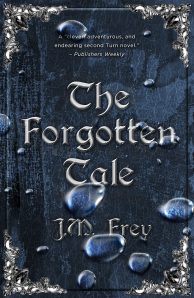
The Forgotten Tale (J.M. Frey)
$5.99 Select options This product has multiple variants. The options may be chosen on the product page -

Ghosts (J.M. Frey)
$1.99 Select options This product has multiple variants. The options may be chosen on the product page -
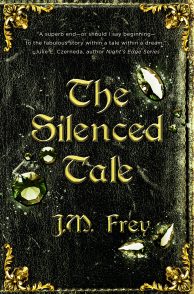
The Silenced Tale (J.M. Frey)
$5.99 Select options This product has multiple variants. The options may be chosen on the product page -

Arrivals (J.M. Frey)
$1.99 Select options This product has multiple variants. The options may be chosen on the product page


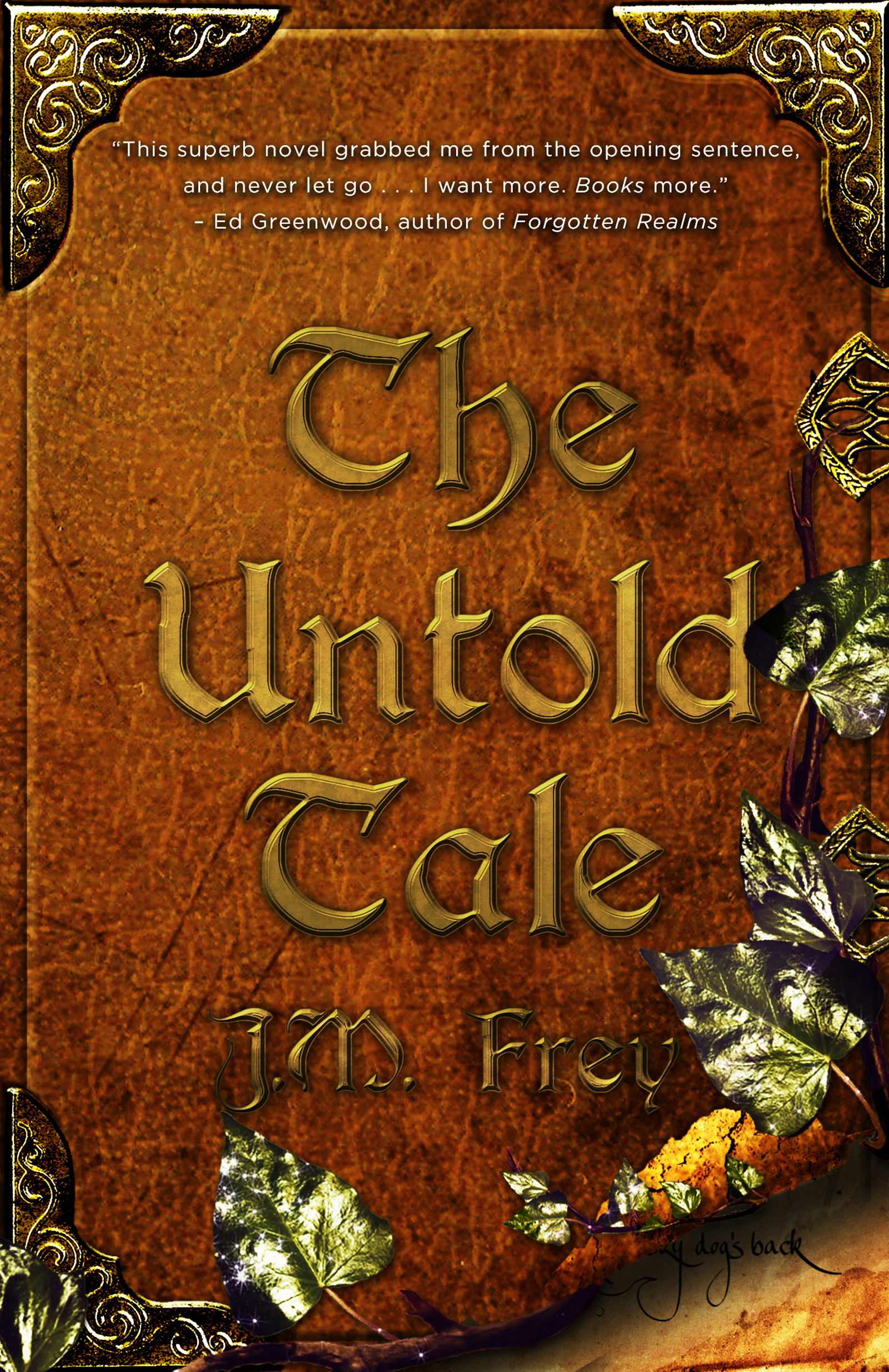
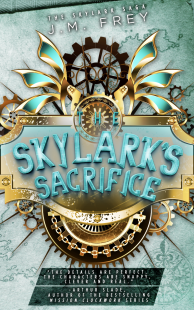


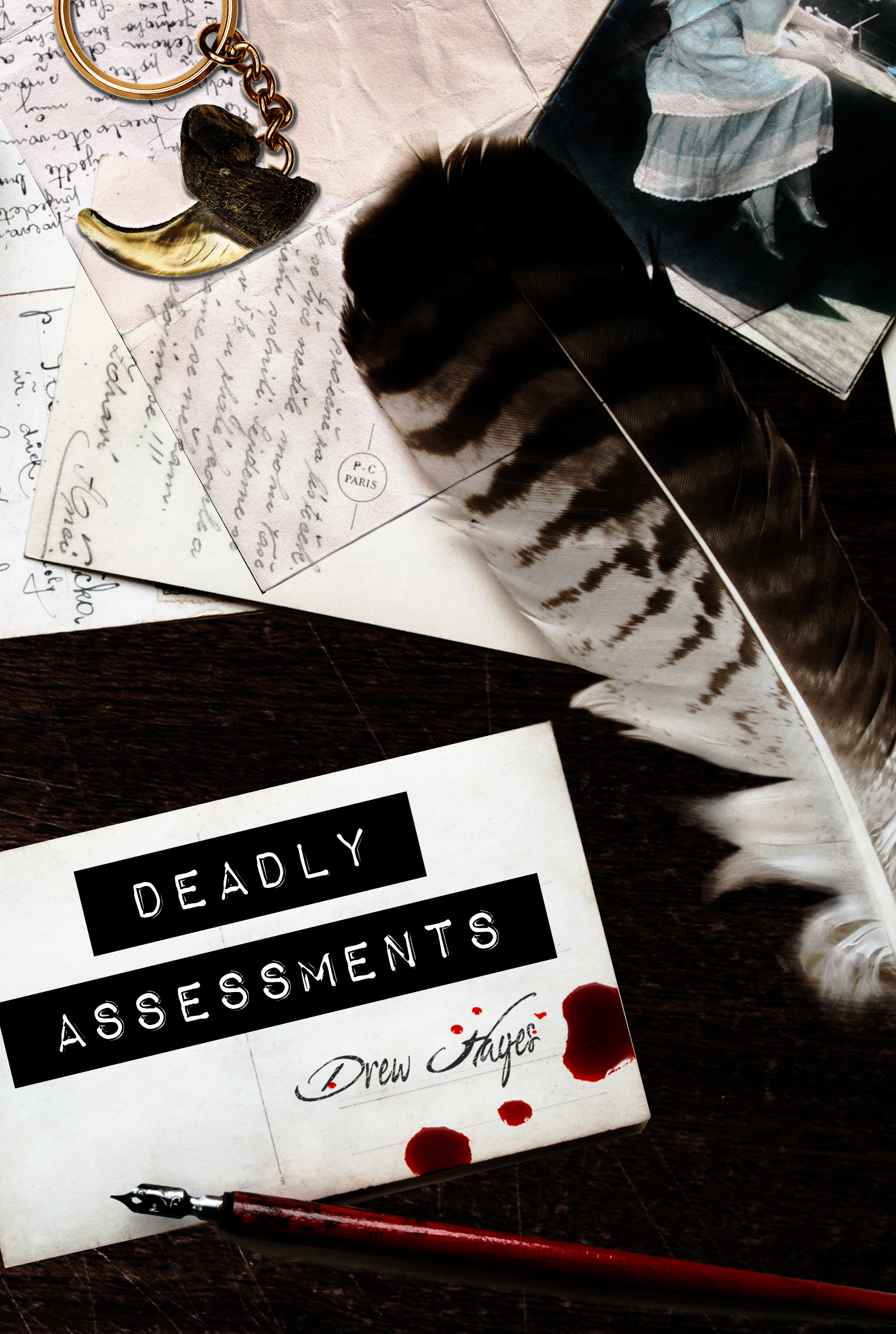

Reviews
There are no reviews yet.